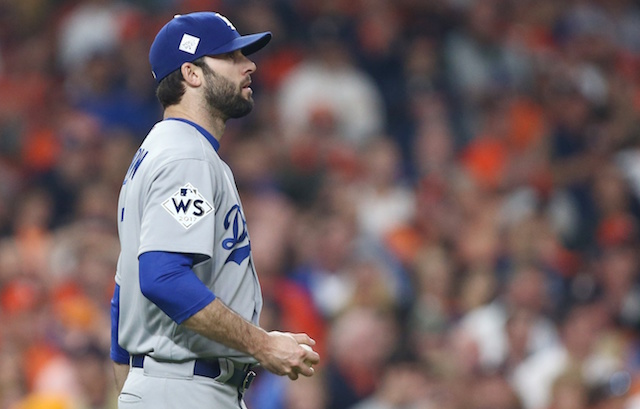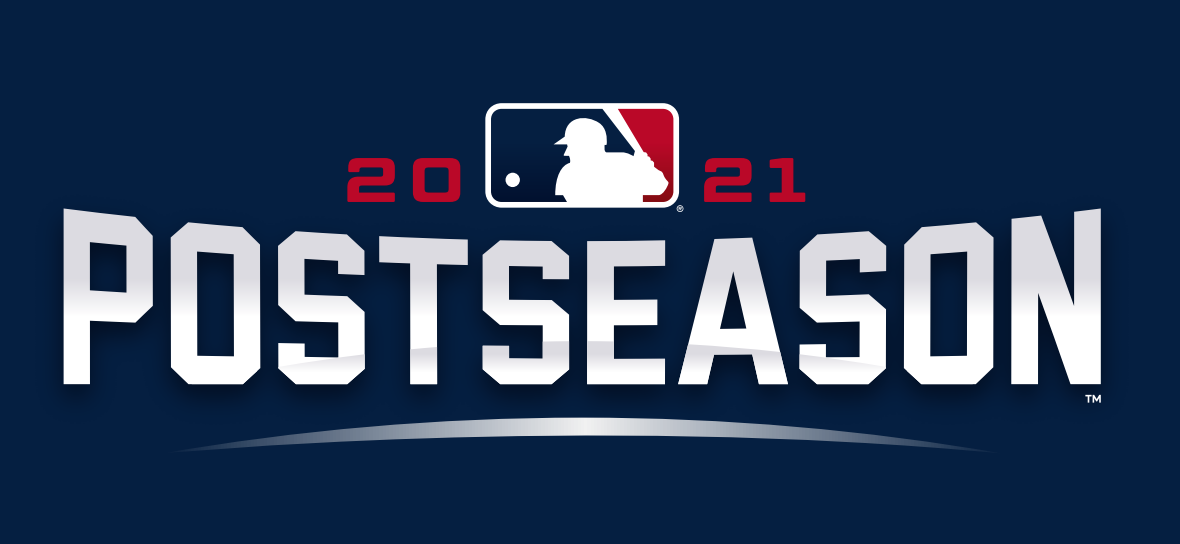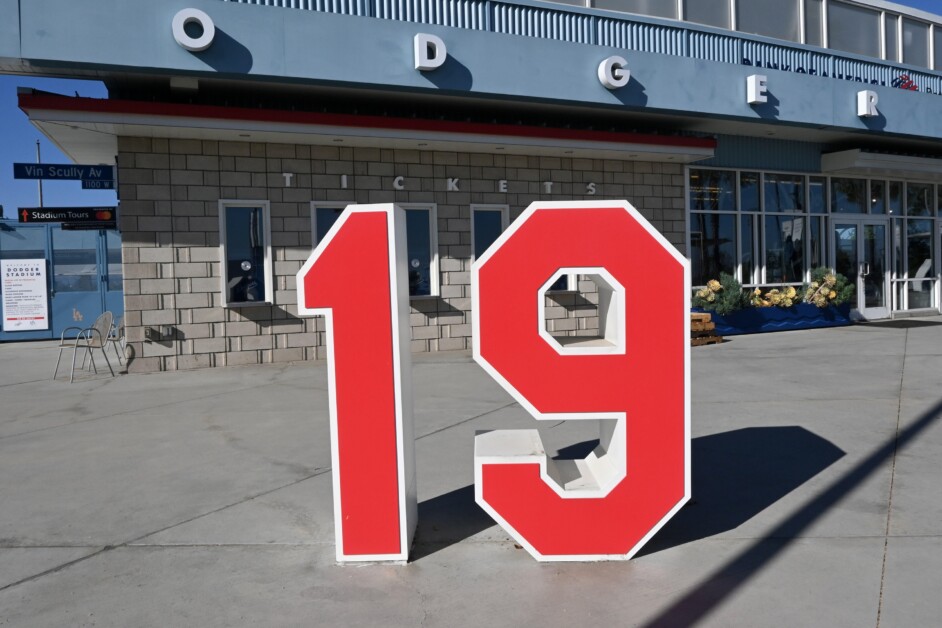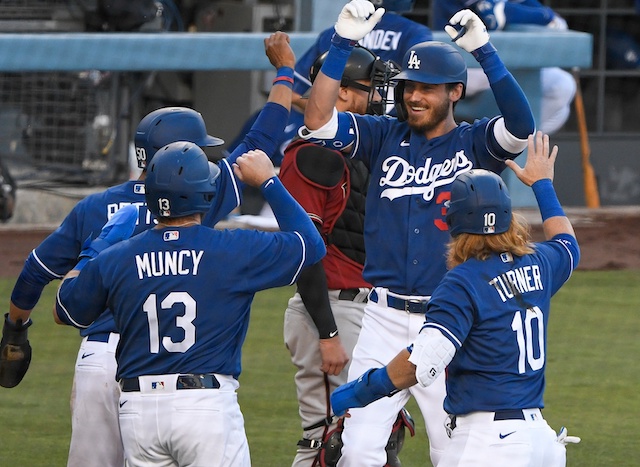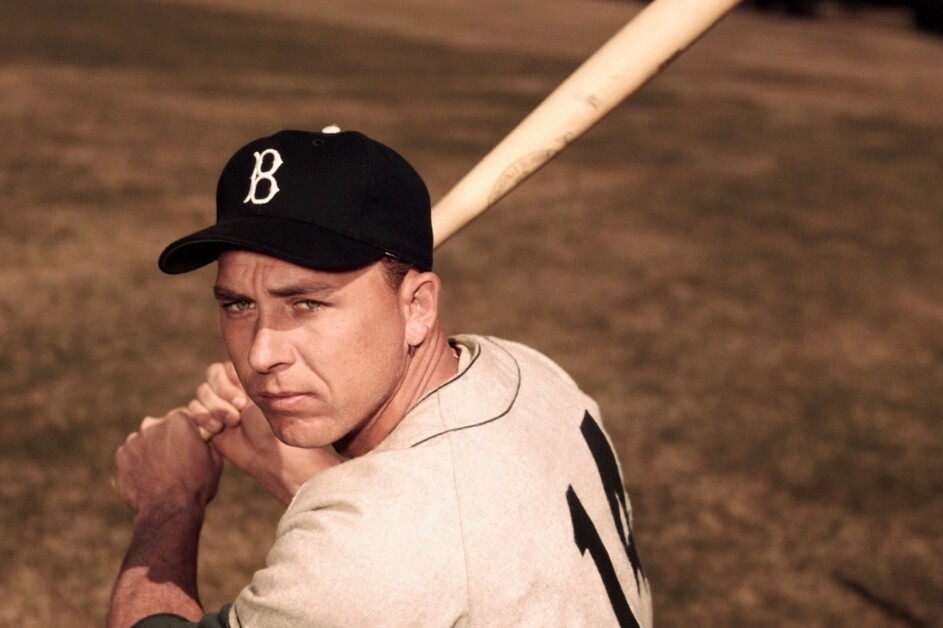The offseason has lacked its usual frenzy in free agency or on the trade market to this point, but that figures to change next week when the Winter Meetings kick off. Arguably the most notable free-agent signing to date is Mike Minor, who joined the Texas Rangers on a three-year deal, with a reported contract value of approximately $28 million.
Minor, who will turn 29-years-old the day after Christmas, was the premier southpaw on the open market. The 2017 season marked his first time on the mound in three seasons after undergoing surgery for a torn labrum in 2015.
Prior to his transition as a reliever with the Kansas City Royals, Minor was an up-and-coming starting pitcher for the Atlanta Braves. He enjoyed a breakout year for the organization in 2013, when he went 13-9 with a 3.21 ERA, 3.37 FIP and 1.09 WHIP over 204.2 innings.
The Royals eased Minor back into action this season and deployed him as a left-handed specialist before he earned high-leverage opportunities later in the year. In 77.2 innings, he pitched to a 2.55 ERA, 2.96 FIP and 1.02 WHIP with 88 strikeouts to 22 walks.
Minor held left-handed batters to a minuscule .163/.228/.196 slash line, punching out 36 batters in 102 opportunities (35.3 percent strikeout rate). More impressively, he limited opposing right-handed batters to the tune of a .223/.281/.383 batting line and proved he was capable of handling any in-game situation presented to him.
Other teams that pursued Minor viewed him as a reliever that could log multiple innings on occasion, similar to the Cleveland Indians’ use of fellow southpaw Andrew Miller. But the Rangers plan on utilizing their new signee as a starting pitcher, which could potentially impact the market for a similar arm like Brandon Morrow.
Morrow, 33, established himself as a core member of the Los Angeles Dodgers bullpen this season. He was promoted to the Major League club in late May and immediately produced at a high level, tossing 12.2 consecutive scoreless innings to begin his tenure with the club.
During the regular season, Morrow posted a 2.06 ERA, 1.55 FIP and 0.92 WHIP in 43.2 innings, and served as the team’s primary bridge to Kenley Jansen. He struck out 50 batters and walked just nine over the course of the year without allowing a home run.
Like Minor, Morrow was dominant against left-handed hitters, holding them to a .125/.183/.125 line. He emerged as an iron man for the Dodgers in the postseason — and especially in the World Series — where he became just the second pitcher in MLB history to appear in all seven games.
After beginning his career as a starting pitcher with the Toronto Blue Jays, Morrow switched to a relief role as a member of the San Diego Padres in 2016. The Santa Rosa, Calif., native then joined the Dodgers on a Minor League contract prior to Spring Training, which ended up paying dividends for both parties.
Now a free agent, Morrow is in line for hefty pay raise this offseason. The right-hander has stated a desire to re-sign with the Dodgers, but figures to draw heavy interest from other clubs as well.
The Chicago Cubs reportedly view him as a potential closer, and could pounce if Wade Davis signs elsewhere.
Unlike Minor, Morrow isn’t expected to receive interest from other clubs as a starting pitcher. That should come as no surprise, as the latter is considerably older and just logged more than 50 innings in a season for the first time since 2012.
Given Morrow’s injury history and recent wear-and-tear on his arm — particularly after appearing in all but one postseason game for the Dodgers — teams could shy away from offering him a similar contract along the lines of Minor’s respective deal with the Rangers.
That being said, Morrow will still be one of the more sought-after relievers on the market, especially with Minor already off the board. Along with the Cubs, the San Francisco Giants have inquired on potentially signing him.
The Dodgers will surely be in the mix to retain Morrow, but whether they commit the necessary resources to re-sign him remains to be seen. That largely depends on how other clubs value Morrow, and whether a club is willing to overpay for his services.



